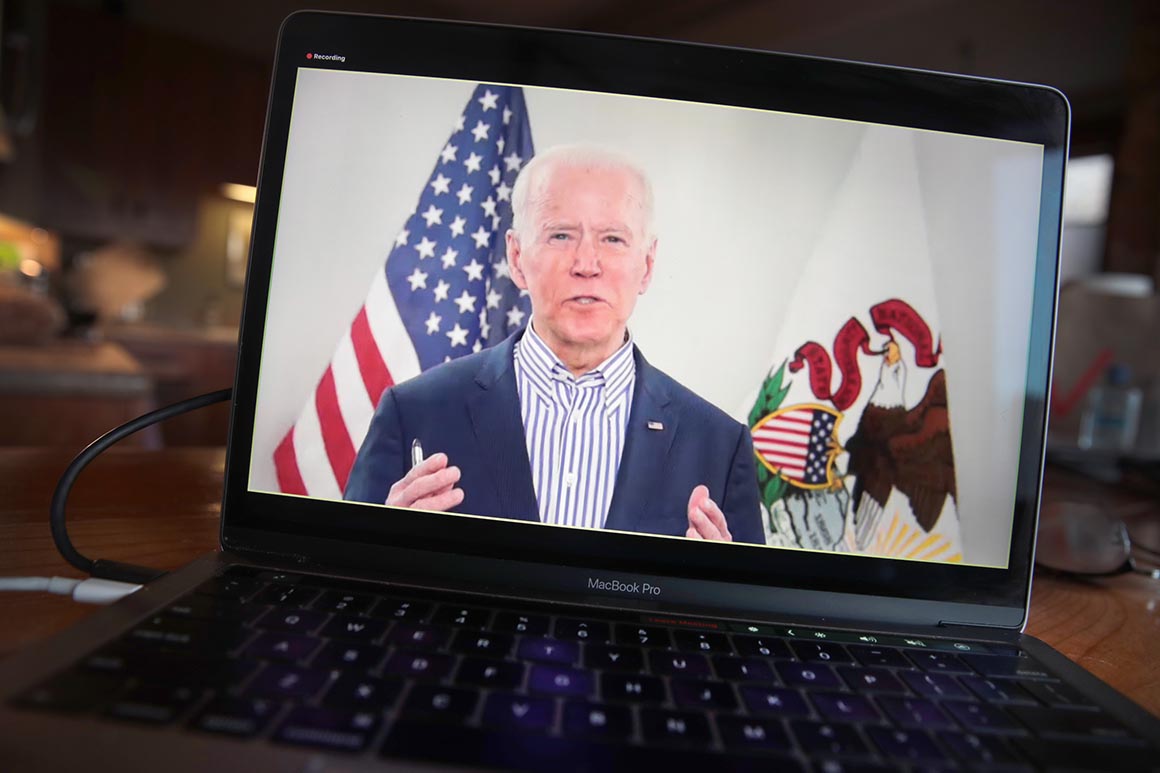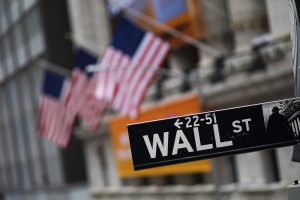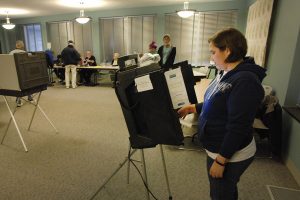Coronavirus is starting to drain money from the expensive world
of political campaigning.
Campaigns across the country have canceled face-to-face
fundraisers for the foreseeable future and are scrambling to figure
out how to raise enough money to stay solvent. Big donors’ stock
portfolios are tanking. And small-dollar, online contributors —
who have never been more important to campaigns — are facing
sudden financial uncertainty and the real possibility of
unemployment.
The severe economic shock from coronavirus could upend the 2020
election. And Democrats see themselves as having more to lose:
President Donald Trump bungled the early days of the coronavirus
crisis, they say, and while that could cost him politically, the
tanking economy will hurt Democrats’ ability to raise the money
challengers need to campaign for the White House and other offices
in 2020. Trump’s well-stocked reelection campaign has less to
lose amid the current financial uncertainty than does Joe Biden,
who is emerging from a costly primary, they argue.
Major donors from both parties already are beginning to scale
back after years of riding high off of a booming stock market,
donors and fundraisers told POLITICO.
“I’m personally postponing anything where more than two people
need to get together until we have an understanding of what the
dangers are. And in terms of spending money, I’m trying to cut
back as much as possible,” said Democratic megadonor and
philanthropist Bernard Schwartz, who has given at least $2.8
million to Democratic causes this cycle, including helping a
pro-Biden super PAC.
Biden and Trump are starting to work donors via the phone and
video meetups, while anxiety rattles through congressional
campaigns and some organizations grow nervous about whether they
will be able to stay in the black.
It won’t take long until campaigns feel the sting, said Amanda
Litman, co-founder of Run for Something, which supports down-ballot
candidates.
“I think the thing people don’t realize is that campaigns and
organizations — both political and nonprofits — don’t keep
that much cash on hand,” Litman said. “You’re running month to
month. One bad month, you can make it through. Two or three, and it
can be catastrophic.”
Run for Something has canceled events through mid-June, which
Litman estimated will cost the group $450,000, approximately 25
percent of its budget for the year.
Both Trump and Biden, who is just beginning to gear up for a
general election as the coronavirus rocks the United States, are
trying to keep growing their campaigns. And the committees and
campaigns associated with House and Senate candidates have canceled
almost all upcoming events, they told POLITICO.
“Safety is more important than fundraisers or negative ads,”
Jesse Hunt, a spokesman for the National Republican Senatorial
Committee, said in a statement. “In-person fundraisers have been
canceled and that will affect our bottom line. And we couldn’t care
less.”
“This decision will cost us money,” Scott Fairchild,
executive director of the Democratic Senatorial Campaign Committee,
wrote in an email to online donors explaining the committee was
canceling all events. “A large chunk of our fundraising is going
to dry up. And to compensate for this shortfall, our Democratic
Senate campaigns will need the support of this online community
more than ever.”
Trump’s campaign has canceled a slew of events, including a
pair of highly anticipated fundraisers featuring Melania Trump —
her first for the reelection campaign — this week in Beverly
Hills and next week at Trump’s Mar-a-Lago resort. Trump also last
week canceled a trip to Las Vegas for a fundraiser hosted by casino
mogul and Republican megadonor Sheldon Adelson.
“Trump’s fundraising juggernaut is certainly going to slow a
bit as the country focuses on survival,” said Republican donor
Dan Eberhart. “It may not be evident today, but campaign
fundraising is certain to take a hit like every other sector of the
economy. There is too much uncertainty for large and small donors
alike.”
Both Trump and Biden will keep raising money online and via
“virtual fundraisers,” held most often through video
conferences with donors. Biden has one such virtual event scheduled
for Friday. (The transition hasn’t always been easy: The Biden
campaign postponed one such event scheduled for this week in New
York City amid technical difficulties, CNBC
reported.)
Earlier this week, the Biden campaign distributed a fresh list
of incentives to its top fundraisers to try to keep money flowing
in: perks for bundlers who raise $25,000 to $500,000 for the
campaign. A fundraiser who raises $25,000 for Biden, known as an
“Advocate,” gets “direct contact with Regional Finance
Director” and “Inclusion in national leadership councils.”
People who raise more money for the campaign — including the
$250,000 “Scranton Circle” and the $500,000 “Philly
Founder” — receive more perks, including “bi-weekly update
calls with campaign leadership” and invitations to quarterly and
annual finance committee events.
“It may become more ‘social distancing’ or more draconian down
the road, then eventually people will realize we need to move
forward with the campaigns as well. Some of that means
resources,” said John Atkinson, a Chicago-based bundler for
Biden.
Meanwhile, some big-name Democrats expected to spend huge sums
on 2020, including Silicon Valley investor Ron Conway and
businessman Mike Bloomberg, have turned their attention to
combating coronavirus. Neither Conway, nor Bloomberg has announced
plans to scale back on politics, but to some, the 2020 election
suddenly seems like a more distant priority than a few months
ago.
Todd Schulte, president of the Mark Zuckerberg-backed FWD.us,
implored lawmakers to use their small-dollar donor lists for
advocacy instead of fundraising in an email to supporters about
helping with coronavirus, obtained by POLITICO.
“Use your email lists,” Schulte wrote. “I don’t think I
got a single email saying call X member and demand ‘more kits
everywhere, mass investment in medical capacity, $1000 to every
American, mandatory sick leave, and more.’ No one is going to
give much online — to you or your opponent,” Schulte wrote.
Some candidates are letting their small-dollar donors off the
hook. Sen. Tina Smith (D-Minn) included a note to donors about the
financial toll the emergency is taking in fundraising emails.
“It’s okay not to donate right now,” one email from Smith
read. Former Colorado Gov. John Hickenlooper, who is now running
for Senate, and MJ Hegar, a Democratic Senate candidate in Texas,
gave donors the ability to temporarily opt out of fundraising
emails during the emergency.
Not every candidate, though, has abandoned raising money in
person.
GOP fundraiser Alexandra Kendrick said that while the vast
majority of her clients have canceled fundraisers — including
Texas Sen. Ted Cruz, who was slated to host a weekend donor retreat
in Napa next weekend — two candidate clients are currently
planning on going forward with their events.
“If it’s me and them sitting at a table with a chicken
sandwich, so be it,” Kendrick said. “It’s not about the
money, I think. It’s about the routine for them.”
Alex Isenstadt contributed to this report.



















